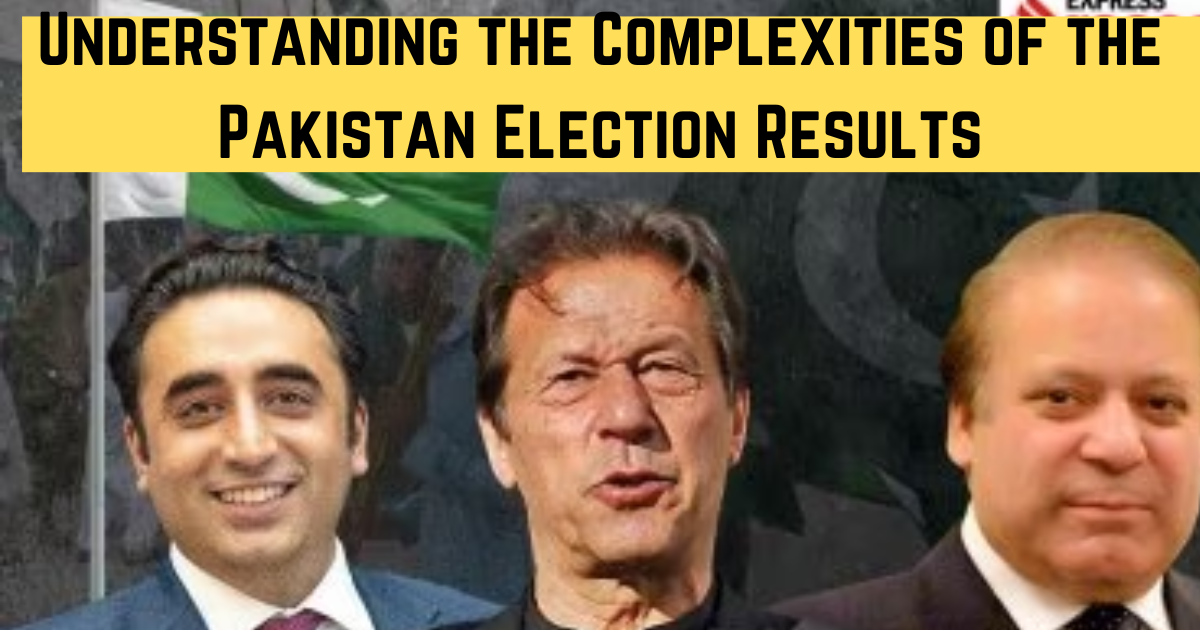Pakistan’s Post-Election 2024 Landscape

Introduction: The aftermath of Pakistan’s recent elections has plunged the nation into a state of political uncertainty . With no single party securing a clear majority, negotiations, alliances, and power plays have taken center stage, shaping the trajectory of the country’s future governance.
Coalition Building:
- Pakistan Muslim League-Nawaz (PML-N) and Pakistan Peoples Party (PPP) forge discussions to form a coalition government, aiming to consolidate their parliamentary strength.
- Nomination of Shehbaz Sharif as prime ministerial candidate by PML-N, replacing Nawaz Sharif, former 3 times premier of Pakistan.
- Political calculations behind PML-N’s alliance with PPP and other smaller parties to achieve a parliamentary majority.
Leadership Dynamics:
- Emergence of Maryam Nawaz as a prominent figure within PML-N, achieved the position to become Punjab’s first female chief minister, reflects shifting power dynamics within the party.
- Bilawal Bhutto Zardari’s indication of support for PML-N hints at intricate familial and political considerations, underscoring the complex nature of Pakistani politics.
- Imran Khan’s Pakistan Tehreek-e-Insaf (PTI) adopts a selective approach to coalition talks, excluding PPP, PML-N, and MQM-P, signaling a firm stance amidst evolving alliances.
International Observations:
- The White House calls for transparency in Pakistan’s electoral process, emphasizing the importance of respecting the will of the Pakistani people.
- International scrutiny include the concerns over the stability of Pakistan’s governance amidst economic challenges and security threats.
Challenges and Implications:
- Fragile coalition dynamics pose challenges to the formation of a stable and effective government, raising questions about policy coherence and governance efficacy.
- Economic concerns exacerbated/becoming worse by political uncertainty, with Pakistan’s benchmark share index witnessing a decline post-election results.
- Security implications amid a surge in militant violence, highlighting the urgency for cohesive governance and strategic security measures.
The Role of Election Commission:
- Notification of victories for key political figures, including members of the Sharif family, prompts scrutiny over the transparency and procedural integrity of the electoral process.
- Questions arise regarding the adherence to electoral guidelines, particularly concerning the submission of election expenses by successful candidates.
Conclusion: Pakistan’s political landscape post-elections underscores the intricacies and challenges inherent in democratic governance. As parties navigate alliances, leadership transitions, and governance imperatives, the path forward remains uncertain. The nation stands at a critical juncture, where effective leadership, inclusive dialogue, and institutional integrity are imperative for addressing socio-economic challenges and advancing democratic values. As Pakistan embarks on this journey, domestic and international stakeholders must remain vigilant and committed to upholding the principles of democracy and ensuring a prosperous future for the Pakistani people.
